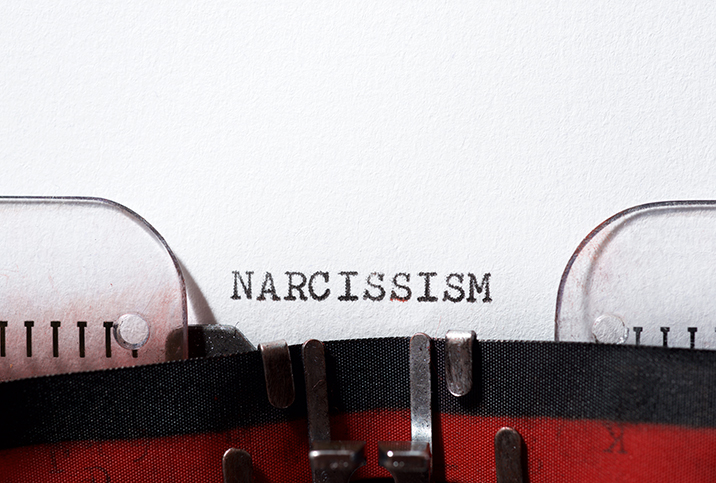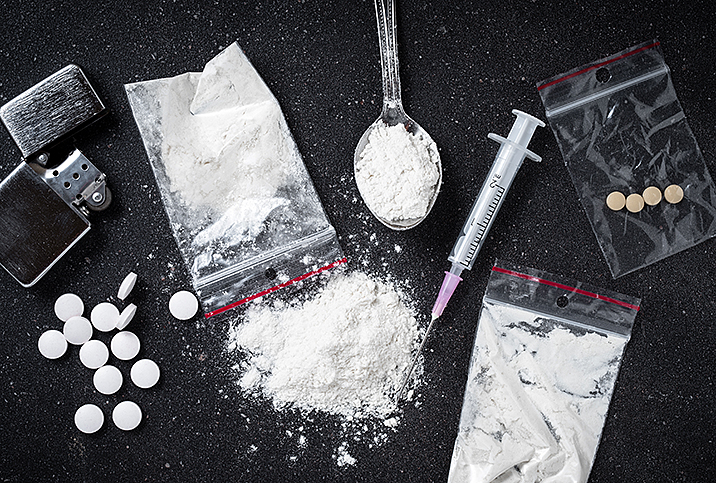Is It Narcissistic Personality Disorder or Something Else?

Is using the term "narcissist" as an insult misleading?
Craig Malkin, Ph.D., clinical psychologist, lecturer for Harvard Medical School and author of "Rethinking Narcissism," would say yes. In a 2015 interview, Malkin reportedly said that calling someone a narcissist to casually tease them for, say, posting a selfie, undermines the very serious and traumatic pain inflicted by people who are truly, severely narcissistic.
While it's uncommon for a person to be classified with narcissistic personality disorder (NPD), it is a real disorder and requires a mental health professional to diagnose and identify it. However, one common thread is intricately woven into the narcissist's mind: trauma and mental illness.
Defining narcissistic personality disorder
According to the Mayo Clinic, the traits of people with NPD include an inflated sense of self-importance, a need for excessive attention and admiration, turbulent relationships, a lack of empathy, and very fragile self-esteem. These behaviors lead people with narcissistic personality disorder to have problems with relationships and/or at work.
While it may seem inevitable for these traits to create abusive people, that's not the case for all patients. People with NPD can also be characterized as friendly, easy to get along with, kind and affectionate.
Narcissistic personality disorder is a spectrum disorder, meaning symptoms vary from patient to patient. Most people with a diagnosis do not have extreme symptoms. Abusive people may be malignant narcissists with NPD or antisocial personality disorder, but not everyone with narcissistic personality disorder is abusive.
Overlap with other mental illnesses
Certain mental health disorders, such as borderline personality disorder and bipolar disorder, can possess some of the same features as NPD. If these behaviors intersect with codependency, trauma or PTSD, you may have found the perfect cocktail for an unstable and challenging relationship.
It is crucial to seek counseling if you feel you or a loved one has a mental illness. It may be a challenge to convince someone with narcissistic personality disorder to attend counseling, but outside intervention may be necessary to help.
Treatment such as cognitive-behavioral therapy and medication can help stabilize these disorders, allowing loved ones to mend broken relationships and heal.
Substance abuse and NPD
Substance abuse and NPD are easily entangled, which makes matters more severe. Substance abuse can trigger narcissistic behaviors, just as narcissistic personality disorder can trigger substance use. This means when people with narcissistic personality disorder abuse substances, co-occurring disorders become even trickier for mental health professionals to diagnose. Substance users who have NPD may believe they know better than their clinicians and ignore advice and avoid treatment.
Many substance abuse interventionists offer dual diagnosis intervention. Traditional interventions hinge on the subject recognizing a problem exists and needs to be fixed. However, people with NPD are prone to deep-rooted denial that makes this step difficult. Dual diagnosis intervention approaches both personality disorder and addiction in tandem. Treating these conditions together is important because of how they interact with each other. If only one problem is solved, the other issue allows it to resurface.
Where to get help
There are many resources you can turn to for immediate help with mental health and substance abuse issues. Some are available 24/7 and offer referral services to specialists such as:
SAMHSA (Substance Abuse and Mental Health Services Administration) National Helpline: 1-800-662-HELP (4357)
National Suicide Prevention Lifeline: 1-800-273-8255
National Domestic Violence Hotline: 1-800-799-SAFE (7233)
















